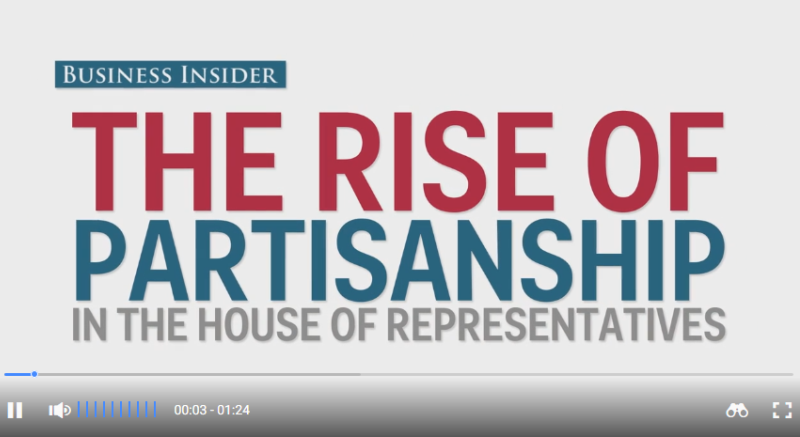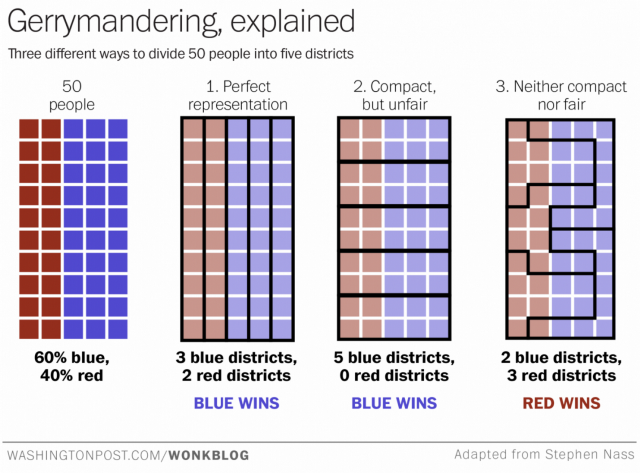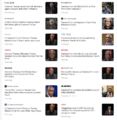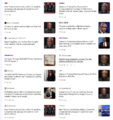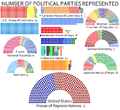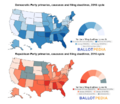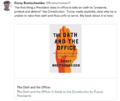Category:Voting Systems
<addthis />
Civil Rights / Election Law / Election Reform / Voting Rights / Voting Systems
·································································
Partisan politics in the U.S.
Deeply involved in influencing voter participation, election systems, ballot access, state gerrymandering and redistricting
Online Legislative/Governance Data (U.S.)
- http://www.ncsl.org/research/telecommunications-and-information-technology/ncsl-50-state-searchable-bill-tracking-databases.aspx | NCSL Database
- http://www.ncsl.org/research/elections-and-campaigns/2011-2013-elections-legislation-database.aspx | NCSL Elections
- https://www.law.cornell.edu/states/listing | State Laws
- https://legiscan.com/ | LegiScan
- https://www.opencongress.org/bill/all | Open Congress
- https://www.youtube.com/watch?feature=player_embedded&v=WP4YfmC0vdU | LexisNexis StateNet
Wiki Ballotpedia (U.S.)
- http://ballotpedia.org/Main_Page | Ballotpedia
- https://twitter.com/ballotpedia | TW Updates
- http://ballotpedia.org/Public_Policy | Public Policy
Voting Systems and Threats to Democratic Elections & Governance
- Election Reform in the US
- Time for Proportional Representation
- Time for Preference Voting Systems like "Ranked Choice Voting" (RCV) and "Instant-Runoff Voting"
- Time to change "first-past-the-post" --- "winner-take-all" electoral systems ...
-=-=-=-=-=-=-=-=-=-=-=-=-=-=-
Ranked Choice Voting?
September 2016
California is out in front in passing a first RCV reform
- Governor Brown questions how it will effect voter participation
In 2010, Jennifer Pae, Director of FairVote California, sat in Oakland City Hall listening to the debate about whether ranked choice voting (RCV) should be implemented for that election year, despite the fact that in 2006, voters had overwhelmingly supported ranked choice voting to be adopted by a margin of 69% to 31%. Oakland voters knew that consolidating a June primary to a general election was more just and fair because turnout is highest and more diverse in November.
This conversation was only made possible because Oakland is a charter city and voters were able to make this decision. The type of election system a community uses has a direct impact on the type of representation people get. Unfortunately, under current state law, general law cities and many kinds of districts must use a single-round “plurality” voting method, also known as “winner-take-all” or “first-past-the-post.” Whatever it is called, plurality voting can have terrible results because of vote splitting and the spoiler effect. Without a majority requirement, a crowded field of three or more candidates could mean a winner is declared with a third of the vote or less because too many similar candidates can split the vote.
In contrast, state law prohibits general law counties from using a plurality system. Instead, it requires that they must use a majority two-round runoff system, even as it bizarrely prohibits general law cities from doing so. SB 1288 would have given both cities and counties more options, including an efficient single-round majority system in the form of ranked choice voting.
SB 1288 provided an opportunity for all California communities to have more options, just like Oakland, so they can better select an election method that reflects the will of the people and their needs. It is disappointing that Governor Jerry Brown decided to veto SB 1288. FairVote agree with Governor Brown, we want to encourage more voter participation, especially since California’s voter turnout has been at record lows.
That is what SB 1288 sought to do — that is, encourage participation by giving more options to more voters for electing a true representative. By depriving cities and counties the choice of which voting method works best for their communities, including an opportunity to use ranked choice voting so that voters have more voice and a greater choice, Governor Brown is making the choice for them.
Governor Brown overlooked the most comprehensive study on the impact of ranked choice voting on voter turnout by Professor David Kimball of Missouri-St. Louis and Ph.D. candidate Joseph Anthony. Their study has two key findings: 1) ranked choice voting has limited positive or negative impacts on turnout and 2) turnout in ranked choice voting general elections is higher than in primary or runoff elections. Local election turnout is influenced more by factors like a competitive mayoral election, other races on the ballot (including initiatives), and the use of even year elections. When compared to primary and runoff elections, ranked choice voting general elections are associated with a 10 point increase in voter turnout. So if general law cities want to move from a plurality system to a majority system, ranked choice voting would in fact be a better option for participation.
Furthermore, the 2014 Rutgers-Eagleton Poll, working with professors Caroline J. Tolbert and Todd Donovan, conducted rigorous independent opinion polls in the four California cities with ranked choice voting and seven control cities without it. They explored voters’ experiences, showing that voters understanding of RCV is actually higher than their understanding of winner-take-all elections in plurality cities (22% vs. 12%). They also found a strong majority of voters want to keep their RCV system, perhaps in part because they experienced more civil campaigning and more direct engagement with candidates than in non-RCV cities.
○
Jennifer Pae: As a daughter of immigrants, I’m shocked to see that Governor Brown would assume RCV is “overly complicated and confusing” when our current election system has been a challenge for many voters, particularly from underrepresented communities, and require significant improvements to achieve full participation. RCV gives voters an opportunity to rank their candidates, just like we rank our preferences on a daily basis. We should continuously engage and educate voters, whether it’s with RCV or not, as our country and state continues to become increasingly diverse. SB 1288 addresses the need for voter education and we are proud to have the support of Asian Americans Advancing Justice which sees this issue on a daily basis.
We are incredibly thankful for the leadership of Senator Mark Leno, Senator Ben Allen, Senator Loni Hancock, and Assemblymember David Chiu for carrying the bill forward to passage. We are also proud of the support from the entire Bay Area delegation: Asm. Tony Thurmond, Asm. Rob Bonta, Asm. Phil Ting, and Senator Bob Wieckowski. They have a deep understanding of how their constituents have benefited from RCV and why this option should be available to all Californians.
While this news is certainly a setback, we are encouraged by the progress for fairer local elections shown by the bill making it this far. SB 1288 earned the votes of 74 of 120 California legislators and the backing of a range of groups, including the League of California Cities and the League of Women Voters of California. A special thank you to California Common Cause and Californians for Electoral Reform for sponsoring the bill and building bipartisan support.
Along with the bill’s many supporters, we will continue to raise awareness about ranked choice voting, including in the 121 charter cities that have the option to join Berkeley, Oakland, San Francisco, and San Leandro in using it. For the 361 general law cities and counties in California, which are unable to adopt RCV, we hope to continue the conversation to enhance voter participation and simplify the voting process to make elections more fair and representative.
Voter Turnout - http://www.fairvote.org/research_rcvvoterturnout
California / RCV - http://www.fairvote.org/ranked-choice-voting-in-the-bay-area
Voter Understanding of Ranked Choice Voting - https://fairvote.app.box.com/v/toolkit-voter-understanding
○ ○ ○ ○ ○ ○ ○ ○ ○ ○ ○ ○ ○ ○ ○ ○ ○
https://en.wikipedia.org/wiki/Voting_system
Voting Systems and Alternatives
Simple Majority / Winner-Take-All / Plurality / First Past the Post
- https://en.wikipedia.org/wiki/Plurality_voting_system
- https://en.wikipedia.org/wiki/Single-member_district
Btw, did you know? The 38 million people who live in the United States 22 least populous states are represented by 44 senators, while the 38 million residents of California, the most populous state, are represented by two.
Apportionment issues are evident in every repesentative democracy.
○ ○ ○ ○ ○ ○ ○ ○ ○ ○ ○ ○ ○ ○ ○ ○ ○ ○ ○ ○
Proportional Representation (PR) -- https://en.wikipedia.org/wiki/Proportional_representation
Instant Runoff (IRV) -- https://en.wikipedia.org/wiki/Instant-runoff_voting
Ranked Choice (RCV) -- http://www.fairvote.org/research-and-analysis/blog/seven-ways-ranked-choice-voting-is-empowering-voters-in-2015/
○ ○ ○ ○ ○ ○ ○ ○ ○ ○ ○ ○ ○ ○ ○ ○ ○ ○ ○ ○ ○
- Election Reform
Voting Information Project (US)
https://www.votinginfoproject.org/
https://www.votinginfoproject.org/news/
In October 2008, The Pew Charitable Trusts published "Being Online is Not Enough." The report found that although millions of people went online in search of answers to their questions about the general election, no standardized, reliable source existed for voters to obtain basic Election Day information. To address this need, VIP was created as a joint effort of state and local officials, The Pew Charitable Trusts, and Google to bring official voting information to voters via the Internet.
https://developers.google.com/civic-information/?hl=en
○ ○ ○ ○ ○ ○ ○ ○ ○ ○ ○ ○ ○ ○ ○ ○ ○ ○ ○ ○ ○
Ballot Access News
Richard Winger, Editory
State-by-state information on ballot access laws -- and ballot access restrictions/prohibitions/obstacles/limitations to electoral participation by independent / 'third-party' candidates in the US
Although polls since the 1990s have indicated a steady upward trend of voters stating they have left the two major parties, Democrat and Republican, and have declared they are "Independent" (as of 2016, the Independent percentage is generally around 43%). The two 'major-minor' political parties in the US, the Green party and Libertarian party have become a presence in many races, overcoming ballot and financial obstacles to participation. Ballot Access News tracks changes in ballot laws/regulations/initiatives and provides continuing coverage of Independent parties/candidates.
○ ○ ○ ○ ○ ○ ○ ○ ○ ○ ○ ○ ○ ○ ○ ○ ○ ○ ○ ○ ○
Voting Systems and Districting/Gerrymandering
Gerrymandering 101 - How to Gerrymander Your Way to Victory
Via the Washington Post - https://www.washingtonpost.com/news/wonk/wp/2016/10/28/how-to-gerrymander-your-way-to-a-huge-election-victory/
Watch the Video - http://wapo.st/1XLi1hT
The political 'gamesmanship' (to 'game' the system) is an ongoing factor in most all electoral jurisdictions in the US.
The result of ballot laws and restrictions, compounded by actions to 'guarantee' re-elections by incumbant office-holders (as in districting decisions that are often called 'gerrymandering' and produce court challenges), has led to many political commentators, academics and electoral activists calling for wide electora reform.
Subcategories
This category has the following 18 subcategories, out of 18 total.
B
C
D
E
I
M
R
S
U
V
Pages in category "Voting Systems"
The following 32 pages are in this category, out of 32 total.
B
C
S
Media in category "Voting Systems"
The following 53 files are in this category, out of 53 total.
- 800000 signatures.png 627 × 114; 24 KB
- Access to Voting US-2015.png 560 × 700; 316 KB
- American Legislative Exchange Council.jpg 646 × 143; 41 KB
- At Poynter, St Petersburg, Florida.png 640 × 345; 555 KB
- Dollar-Sign m.png 235 × 235; 10 KB
- EleanorRooseveltHumanRights.png 535 × 423; 60 KB
- ElectionResources.png 607 × 243; 141 KB
- Electoral Count Reform Act - US, Brennan Center 2023.png 749 × 1,611; 339 KB
- Electoral Reform US FairVote.jpg 662 × 270; 36 KB
- FairVote.jpg 535 × 122; 14 KB
- George Floyd In-Memory.jpg 600 × 450; 68 KB
- Gov and money.jpg 240 × 210; 7 KB
- How Gerrymandering Works via Wonkblog.png 640 × 473; 226 KB
- Jan. 6 final report - news 1.png 600 × 693; 280 KB
- Jan. 6 final report - news 2.png 600 × 584; 260 KB
- January 6 committee - on December 19 2022.png 640 × 468; 591 KB
- January 6 committee final hearing - news.png 600 × 661; 343 KB
- January 6 committee votes to issue criminal referrals against Trump.png 800 × 204; 458 KB
- June 9, 2020, Funeral Service for George Floyd begins.jpg 630 × 356; 60 KB
- Juneteenth.jpg 596 × 521; 106 KB
- Manual Audits needed.png 557 × 480; 148 KB
- Memorial Fence-Wall-Washington DC.jpg 800 × 534; 124 KB
- Memorial for George Floyd.jpg 587 × 535; 139 KB
- Money in Politics - PoliticoPay.png 491 × 226; 31 KB
- Money in Politics-System Failure-JLawrence Vid 2019.jpg 496 × 501; 44 KB
- OhClarence - Google News - Aug 10, 2023.png 800 × 856; 391 KB
- OhClarence 2 - Google News - Aug 10, 2023.png 800 × 819; 461 KB
- OhClarence 3 - Google News - Aug 10, 2023.png 800 × 842; 473 KB
- OhClarence 4- Google News - Aug 10, 2023.png 800 × 853; 491 KB
- Political parties represented 2015.png 720 × 658; 441 KB
- President Biden - January 5, 2024.png 600 × 470; 236 KB
- President Biden speaks of protecting democracy - Jan 5 2024.png 600 × 686; 214 KB
- President Biden speaks of protecting democracy - News on Jan 5 2024.png 600 × 664; 351 KB
- Presidential Ballot Access US 2016 cycle.png 800 × 692; 131 KB
- Protect Democracy.png 775 × 600; 727 KB
- Ranked Choice - Santa Fe.png 587 × 434; 58 KB
- Ranked Choice - Santa Fe2.png 796 × 399; 44 KB
- Ranked Choice - Santa Fe3.png 750 × 445; 208 KB
- Richard Jacobs and The Man in the Arena - on July 4 2022.png 800 × 380; 192 KB
- Rise of Partisanship in US Congress.png 800 × 437; 178 KB
- Roosevelt and Muir at Yosemite.png 503 × 694; 686 KB
- SCOTUS-and the curtain re ABA.jpg 800 × 401; 152 KB
- The Great Hack.jpg 640 × 395; 73 KB
- The Oath and the Office.png 572 × 480; 151 KB
- Trump on Termination of US Constitution - 1.jpg 600 × 607; 166 KB
- Trump on Termination of US Constitution - 2.jpg 600 × 600; 181 KB
- Trump on Termination of US Constitution - 3.PNG 600 × 600; 227 KB
- US Party Identification 88 to 14.jpg 494 × 314; 27 KB
- US Senate debates voting rights bill.jpg 640 × 461; 107 KB
- Voting restriction bills 3-24-2021.png 640 × 409; 78 KB
- Voting Wars.jpg 220 × 347; 80 KB
- Your vote.png 318 × 133; 11 KB
- Legislation
- Topic
- Ballot Access
- Ballot Initiatives
- Ballot Measures
- Campaign Finance
- Civil Rights
- Climate Policy
- Corporate Accountability
- Democracy
- Election Law
- Election System Reform
- Electoral System Reform
- Environmental Laws
- EOS eco Operating System
- Green Politics
- Green Values
- Human Rights
- Initiative and Referendum
- Initiatives
- Money in Politics
- Participatory Governance
- Planet Citizen
- Redistricting
- Sustainability Policies
- United States
- US
- Voting
- Voting Rights
- Workers Rights

